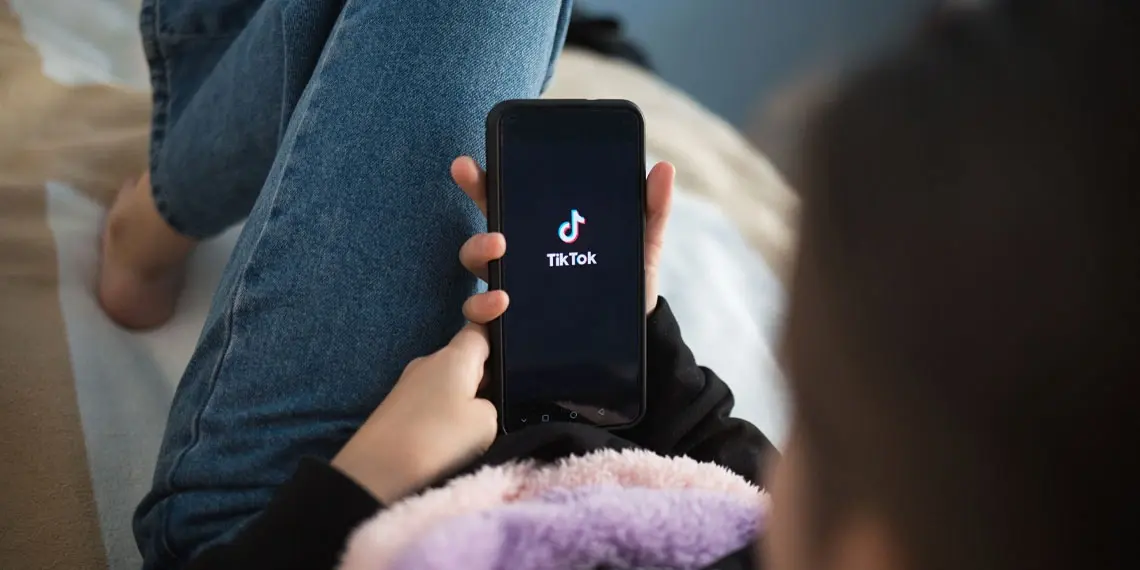I am not disputing the fact that there is a ton of misinformation about Autism on TikTok (and the internet as a whole), because there absolutely is and it’s dangerous. But it gives me pause that the researcher behind this study developed and promotes a treatment method that is essentially a cousin of ABA. That makes me incredibly skeptical of what his rubric might be for filtering the claims as factual or not.
The writer of that psychology today article put her son in ABA, and actually endsup advocating for it (as long as the ABA therapist used a modern, child first approach.) I agree with her.
My son has been in modern ABA since he was two after his developmental pediatrician recommended it. (I have aspergers myself, as does my kid’s father - both of us never required ABA as kids though I had speech therapy/saw a psychologist about my “acting out” etc) So I had no reason to be suspicious of ABA, or knew about how it used to be. However my son’s experience been so positive I never considered that it might have (pretty horrible) origins or were started by a person like that.
I’ve seen many sessions at two different practises, and from what I’ve experienced, the modern version is VERY divorced from the old methods you are describing.
The place my son attends (he still goes there twice a week) they teach kids to be proud of being autistic, and to understand themselves as well as advocate for what they want using group-play based activities. Stimming and other typical ASD behaviours are not ever discouraged, though communication is (however they prefer to do it.) It’s not about forcing them to act like normies. It’s about giving them the tools to understand themselves and others. They also have parent classes to help understanding and acceptance of ASD behaviours, and how to advocate for your kid in school and other settings.
My son used to be basically non-verbal, he would headbutt and bite us frequently as a result of his frustrations. So had we tried putting our son in speech therapy, however we took him out of that since the methods were very repetitive and frustrating for him. It was much harsher than what he’s experienced in ABA. ABA had my kid actually asking for what he wanted, didn’t want, enaging in play… also the biting and headbutting us stopped. I’m not sure why seeking out some kind of therapy to help him communicate better is seen as “forcing him to conform”…
After seven years of ABA, my kid is happy as hell. He loves his therapy group and his therapists. He’s still going twice a week, he’s learning about online safety, multiplayer gaming (taking turns and playing as a team) and how to deal with bullies. They have a video game playing league.
It’s important for people who experienced the horrific side of ABA to voice their experiences and advocate for acceptance of neurodiversity in all its forms. I in no way want to dismiss the trauma of someone who had to experience ABA the way it used to be.
But call ALL forms of modern ABA or other behavioural therapies for kids ‘coersive’ or ‘abusive’ - or to compare them to something like conversion therapy? …I don’t know even know how to describe it. But it is very, very very off base and misinformed at the very least.
I’m not going to argue, since it seems like you have a pretty strong opinion about this. (As do I)
But I wanted to put it out there that doctors tend to recommend modern ABA for a reason. Evidence-based methods matter. I recommend it myself, provided you investigate the clinic first to see what their approach is.
As someone who grew up with a (quite) younger sibling in the most disabling end of the spectrum, witnessing all the development from infancy to adulthood, I am very reluctant to recommend for/against any specific approach, because I think that what matters most is the people who actually practice it. So, I absolutely agree with the last sentence of your comment.
The negative aspects of ABA are not entirely in the past. I am not in a position to verify the information I will quote, but this is mentioned in the third of the linked articles:
Mandell says ABA needs to renounce that history — especially the early reliance on punishments like yelling, hitting, and most controversially electroshocks, which are still used in a notorious residential school in Massachusetts called the Judge Rotenberg Educational Center.
To be clear: I am not arguing with your experience here. Rather, I am pointing out how important is the kind of practice of whatever theory and what the focus of the practice actually is. It’s really very difficult to find professionals who are actually both able and willing to care properly for autistic people. At least in the place I live.
Beyond that, I have to say that there are many things that now have positive effects on people’s lives that weren’t exactly positive in their original forms.
If “operant conditioning” makes you think of dog training, you’re right.
This isn’t the bad part. Operant conditioning is how all behaviours are formed, if something gives a positive feeling or takes away a bad one the behaviour increases, if it adds negative feeling or takes away a positive one the behaviour decreases.
The issue with ABA is firstly trying to take a persons personhood away, teaching someone that who they are is bad, and secondly the mad schedules they impose. It might be that a person doesn’t feel comfortable with eye contact, the ideal situation is we go “cool, don’t do that” and everyone is just cool with it, a middle ground that is a good idea is to help the person get used to using intermittent eye contact or using little tricks like looking at someones nose or forehead. The ABA solution is we force the person to make eye contact for an hour a day, regardless of comfort, and witholding a comfort item, like a tablet, until they have completed that hour. It’s treating a child (or sometimes an adult) as a non-entity, just an issue that needs to be fixed, needs to be ‘normal’.
deleted by creator
deleted by creator
It does not “intervene” in their Autism so much as it forces them to appear more neurotypical, and a study from 2018 suggests that it actually creates PTSD symptoms in the patients
That actually explains so much about me holy shit
I hate this fucking world. Seeing your own disability being used by neurotypical fucktardwankers for generating money by basically doing misinformation that completely ruins, what I try to do all the time because fuck me that’s why. May god forgive them. I won’t. And I don’t believe in that motherfucker either.
Thank you for saying this.
Pretty sure you could substitute “autism” with any topic at all and the point would be accurate.
Oh so you mean people on the internet tell lies?
Who looks for facts on social media?
Many people do unfortunately.
It’s not even about looking for facts. If you hear something enough it’ll start to sound normal, so it’s bad even if people don’t look for information on social media.
Plus, we know that people get a lot of their information from social media. Being smug about that isn’t exactly helpful.
What would be helpful?
-
Don’t use Tiktok (and other low quality social media like Twitter) and encourage people you know to do the same. Suggest alternatives like federated sites, and help people navigate it if you can.
-
Firmly correct disinformation when you see it. If you have a topic of interest you find yourself repeatedly addressing, keep a short copy/paste response with easily digestible sources to make the process quick and painless.
-
Engage as little as possible with disinformation, since any kind of engagement is exactly what they’re looking for. When you stumble upon it, state a brief sourced correction and quickly leave. If someone beat you to it, simply leave and avoid in the future.
-
Teach your friends and family about the dangers of misinformation, and the importance of vetting sources. Peer reviewed journal = great. Random youtuber/tiktoker = needs sources to confirm validity.
-
Try to be as polite as possible when addressing disinformation because aggression can cause people to dig their heels in and push them further into the false narrative.
-
Learn terms to describe the spread of disinformation that are easy for people to grasp. Learning and teaching others about things like “good/bad faith arguments” so you can spot and effectively counter trolls, recognizing “irony poisoning” that is a driving force behind the normalization of extremist views, and understanding how “woke” actually means “tolerant and respectful of the differences between human beings” can all help people to see what’s happening and protect against disinformation.
-
If you’re motivated enough, start your own publication that provides accurate, well sourced information on your topics of interest, or join an already established publication as a freelance contributor.
-
Don’t give up. Don’t let anyone convince you that the fight is already over and that we’re doomed to live out 1984. The real fight hasn’t even begun, because so many people are too caught up in their own stressful lives to realize there’s a full blown culture war going on here. Once more people open their eyes to it, sanity will prevail. These points here are exactly how you can begin opening people’s eyes.
-
I’d say the most important thing is teaching young people to be critical about the information they consume, which is only possible if this is talked about in a serious and comprehensive manner in school. Studies like this most likely enable that.
Also, having actual, decent information on those platforms also helps, most likely.
But if you’re asking me to solve this mess, idk. Misinformation has always been a thing.
Only 73% I expected it to be higher.
deleted by creator







